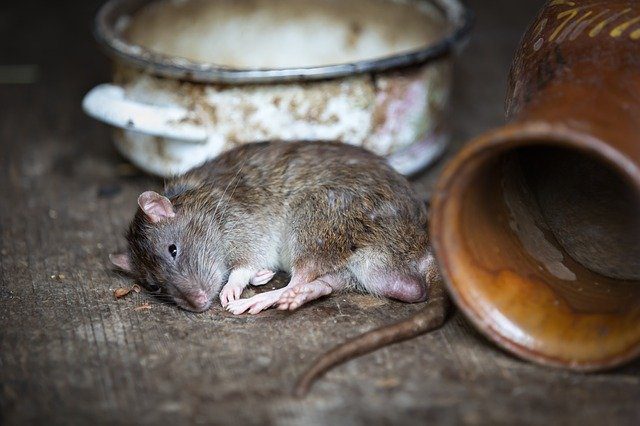Do you hate going to work on a Monday? Spare a thought for refuse collectors who dread Monday mornings as their rounds bring them in direct contact with Britain’s surging rat population.
That’s because they’re coming up against overfilled commercial and domestic bins that rats have had a chance to ransack for food, says a national waste and recycling company.
And with the British rat population increasing by 25% over the Covid pandemic, there’s some truth in the old urban myth that you’re never more than six feet away from a rat, says waste collection company BusinessWaste.co.uk
“Our operators come up against rats on a daily basis,” says BusinessWaste.co.uk spokesperson Mark Hall, “but Mondays are especially bad and our teams are genuinely worried about getting bitten”.
What’s the problem?
Binmen (and women) have struggled with vermin since time immemorial, but the Covid pandemic and milder winters have allowed an explosion in the rat population.
Estimates put the number of rats in the UK at around 150 million, and they’re attracted to wherever humans leave them a steady supply of food. And that means bins.
And, according to refuse collectors, the worst day of the week is always a Monday, because the hungry rodents have had the chance to settle down relatively undisturbed over the weekend in overfilled bins.
“When we go to empty a bin on a Monday, there’s a stream of rats running to safety,” Mark Taylor 44 refuse collector from Addingham told us.
“It’s really bad if it’s a food store or a restaurant, and they haven’t secured the lid. We’re clubbing the bins with a big stick, then giving them a couple of minutes to run away. It’s terrifying.”
We’ve seen videos of rats fleeing commercial bins as if it’s a sinking ship, and it’s not a pleasant experience for anybody involved.
There’s also the chance of a bin man getting bitten.
“Once disturbed, the vermin are in a state of panic and run in all directions,” says Waste collection company Divert.co.uk‘s Operations Director Adam Bailey, “Our teams now go into action with trousers tucked into boots and sleeve cuffs done up tight. But that’s still no guarantee.”
Another veteran operator tells BusinessWaste.co.uk that the problem is worse than ever. “We’re seeing more rats and other vermin than ever before, hundreds of them. And they’re bolder, too.”
Ratty Monday to Fear-filled Furry Fridays – there’s no escape for Britain’s bin men.
Is there a solution?
While it may be difficult to put an end to Ratty Mondays and Terrifying Tuesdays (if Ratty Monday is a Bank Holiday*), Business Waste’s Mark Hall says that there are plenty of things that people can do to deter vermin.
“The number one thing owners can do is secure the lids on their bins,” he says, “And the number two thing is not to overfill them”.
Bin operators approach open and overflowing bins with a sense of dread, knowing that it’s inevitable that there’ll be a fury explosion of angry and frightened rats the moment they move the bin.
For most domestic bins, it’s not really a problem. But for commercial bin owners, the sheer volume of food waste means that bin management is essential to deter vermin.
“That means people who run restaurants, food shops, pubs – anywhere that produces tasty, tasty food waste – needs to lock down their bins every time they use them,” says Hall.
It’s a basic safety measure for which there should be no exceptions, and something local authorities should clamp down on with local byelaws, he says.
“They say that if you’re in a big city, you’re never more than six feet away from a rat,” Says Mark Hall of BusinessWaste.co.uk “While that’s been an urban myth for years, it’s coming more and more of a reality, and it’s a problem of our own making.”
*Other days of the week are available, but they’re ratty too.
Help keep news FREE for our readers
Supporting your local community newspaper/online news outlet is crucial now more than ever. If you believe in independent journalism, then consider making a valuable contribution by making a one-time or monthly donation. We operate in rural areas where providing unbiased news can be challenging. Read More About Supporting The West Wales Chronicle
















![7 Best VPS Providers for Developers [Complete 2025 Guide]](https://xvctqx.infiniteuploads.cloud/2025/01/VPS-218x150.png)







